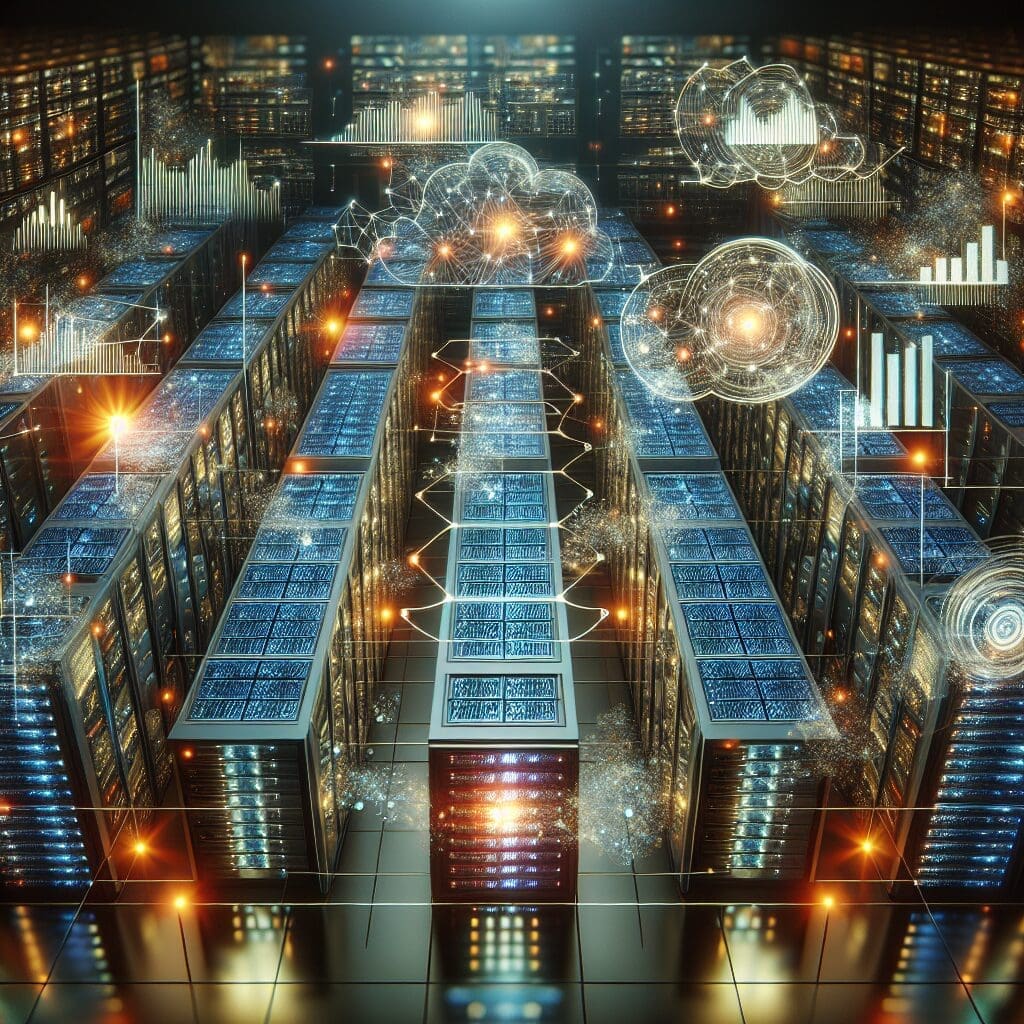Your cart is currently empty!
The Role of Data Center Servers in Big Data Analytics and Machine Learning

Request immediate IT services, talents, equipments and innovation.
Data centers play a crucial role in the world of big data analytics and machine learning. These massive facilities house a large number of servers that store, manage, and process the immense amount of data generated by organizations every day. In this article, we will explore the role of data center servers in enabling big data analytics and machine learning.
Data center servers are the backbone of big data analytics and machine learning. These servers are responsible for storing and processing vast amounts of data collected from various sources such as sensors, social media, and customer interactions. The servers are equipped with powerful processors, memory, and storage capabilities to handle the complex algorithms and computations required for analyzing and deriving insights from large datasets.
One of the key roles of data center servers in big data analytics is to provide the necessary computing power for processing and analyzing large datasets. With the increase in data volume, velocity, and variety, traditional computing systems are unable to cope with the demands of big data analytics. Data center servers are designed to handle the massive scale of data and perform complex calculations in real-time, enabling organizations to derive valuable insights and make informed decisions.
Machine learning, a subset of artificial intelligence, relies heavily on data center servers for training and deploying models. Machine learning algorithms require large amounts of data to learn patterns and make predictions. Data center servers provide the computational resources needed to train machine learning models on massive datasets, enabling organizations to build accurate predictive models for various applications such as fraud detection, recommendation systems, and image recognition.
In addition to processing and analyzing data, data center servers also play a crucial role in ensuring the security and reliability of data. Data centers are equipped with advanced security measures such as firewalls, encryption, and access controls to protect sensitive data from unauthorized access and cyber threats. Redundant power supplies, cooling systems, and backup generators ensure the continuous operation of servers, minimizing the risk of data loss or downtime.
As organizations continue to generate and collect vast amounts of data, the demand for data center servers will only increase. Data center providers are constantly investing in new technologies such as cloud computing, virtualization, and edge computing to improve the performance and efficiency of servers for big data analytics and machine learning. By harnessing the power of data center servers, organizations can unlock the full potential of big data analytics and machine learning to drive innovation, optimize operations, and gain a competitive edge in today’s data-driven world.
Request immediate IT services, talents, equipments and innovation.
Discover more from Zion AI: Free Marketplace for Talents, Tech Jobs, Services & Innovation, Sign-up for free
Subscribe to get the latest posts sent to your email.

Leave a Reply